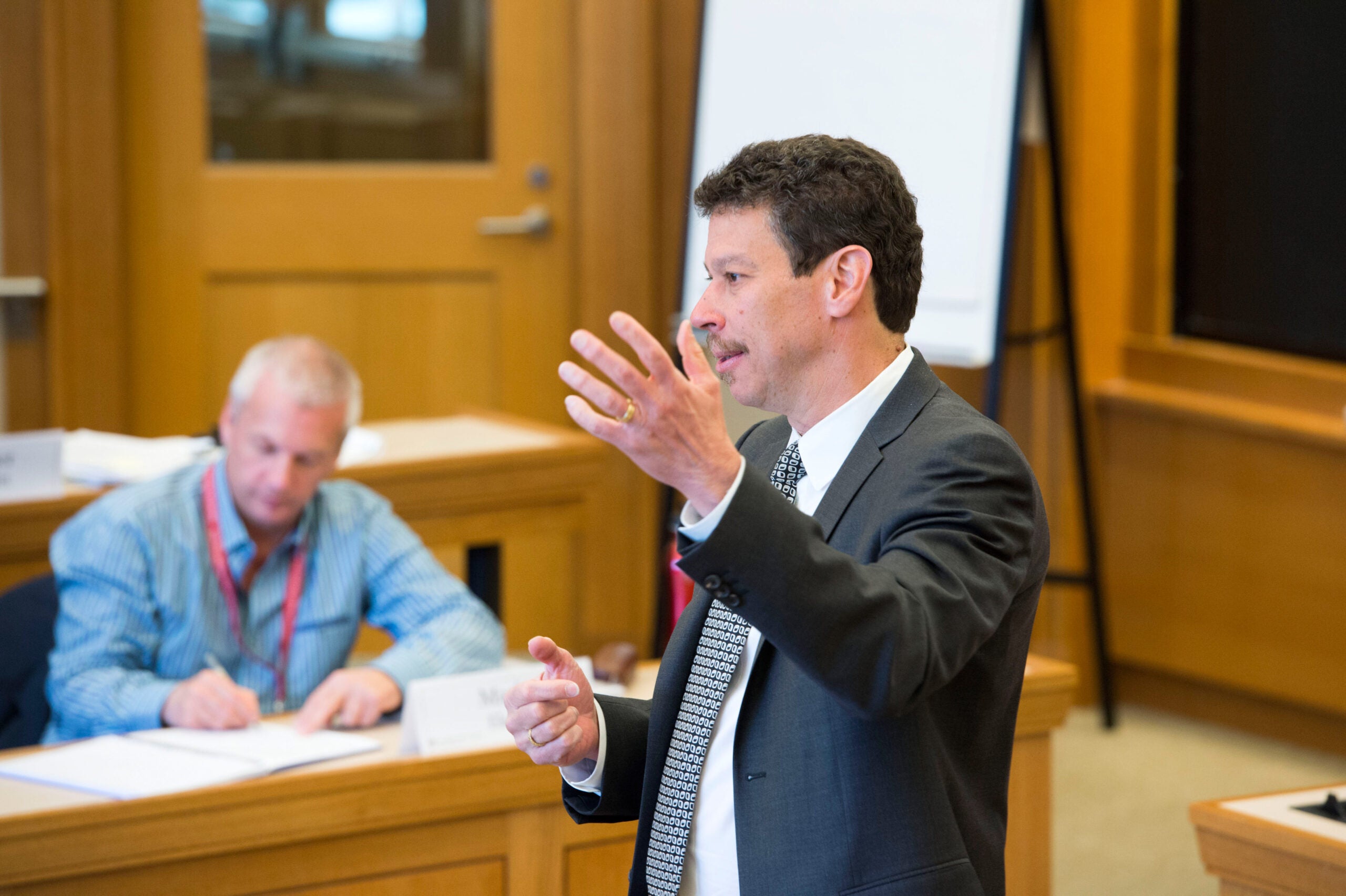For a longtime HLS program, broader scope and reach
The legal profession is going through dramatic change, affected by factors ranging from globalization to new technology to a fragile economic recovery. And a Harvard Law School institution dedicated to studying the profession is undergoing its own big change. In September, the Program on the Legal Profession became the Center on the Legal Profession, reflecting its broader scope and reach.
Created in 1981 and led by HLS Professor David Wilkins ’80, CLP marks this change with a new publication, launched this fall. Called The Practice, the online magazine covers research on the profession with a practical look at developments and trends in the legal industry. The debut of the bimonthly publication features “The Global Age of More for Less,” which examines whether some of the recent changes in the profession represent a “fundamental paradigm shift or temporary correction.” Another article reports on a recent survey by the center on how large companies decide to hire—and fire—outside law firms. Future issues will cover such topics as disruptive innovation in legal services, the meaning of professionalism in the 21st century and changes in legal education.
But some things at the center will remain the same. It will continue to sponsor a range of events capturing change in the profession, such as last year’s conference on Disruptive Innovation in the Market for Legal Services.
And it will also continue to produce the kind of research and scholarly papers for which it has long been known. CLP conducts empirical research on the structures, norms and dynamics of the global legal profession and it has ongoing projects centered on six core themes: Globalization, Legal Careers, the Legal Market, Legal Practice, Legal Education and Access to Justice.
Upcoming Highlights
In the summer of 2014, Wilkins launched a collaboration with Benjamin Heineman, CLP distinguished senior fellow and former general counsel of General Electric, and William Lee, partner at WilmerHale and senior fellow of the Harvard Corporation, to address the responsibilities of lawyers both as professionals and as citizens at the beginning of the 21st century. In the coming months, CLP will solicit comments from a range of legal professionals to be published on its new website, and it will host a major conference discussing these themes.
The center’s Globalization, Lawyers and Emerging Economies initiative has been studying ways in which globalization is reshaping the corporate legal sector in countries including India, Brazil and China. The initiative’s working papers are featured on CLP’s website as part of its Research Paper Series. CLP expects to publish its India and China volumes next year, and is in the preliminary stages of expanding its Globalization, Lawyers and Emerging Economies initiative to Africa.
In the spring of 2015, CLP will release its Harvard Law School Career Study Report, an in-depth look at the professional development and career trajectories of the Classes of 1975, 1985, 1995 and 2000. The report will pay particular attention to the role of gender in career advancement and work-life satisfaction.
The Access to Justice project, a groundbreaking consumer debt study led by HLS Professor D. James Greiner, CLP affiliate, will continue its assessment of the effectiveness of financial counseling and various forms of legal assistance for people in severe financial distress. The randomized control trial takes place in Maine, with participation from academics, a financial counseling service provider, Maine’s principal legal aid provider, representatives from credit bureaus and the Maine judiciary.
